Ensuring Integrity in the Voting Process
The integrity of the voting process is a cornerstone of any democracy. This year, certain News24 readers have voiced their concerns regarding the secrecy of their votes in the special voting process. These concerns primarily stem from the use of a double envelope system, where one of the envelopes contains personal details, including an ID number. The Electoral Commission of South Africa (IEC) has stepped in to allay these fears and explained the stringent measures in place to protect the confidentiality of each vote.
According to the IEC, the double envelope system is meticulously designed to uphold the secrecy and anonymity of the voter's choice. When a voter casts their special ballot, they mark it in private, ensuring no one else sees their selection. This marked ballot is then placed securely in an unmarked envelope. However, to maintain accurate records and allow for the verification of special votes, this unmarked envelope is placed inside another envelope marked with the voter's personal details.
How the Double Envelope System Works
The process begins when the voter receives their ballot paper and two envelopes. The voter's first task is to mark their ballot in secret, ensuring that no eyes but their own see their vote. Once marked, the ballot is sealed in an unmarked envelope. This is critical as it retains the vote's anonymity.
Next, this unmarked envelope is placed inside a second envelope, which includes the voter's details, such as the name and ID number. This step has raised questions among voters, but the IEC reassures that it serves a vital purpose. The personal details allow election officials to ensure that only registered voters cast the ballots, preventing any instances of fraud. When the outer envelope is opened on Election Day, the inner unmarked envelope containing the actual vote is placed into a ballot box, effectively delinking the vote from any personal identification and preserving the voter's anonymity.
Storing and Transporting Votes Safely
Once the special votes are cast, they are not left unattended. The IEC outlines a strict protocol for the transport and storage of these votes. Special votes are initially moved to secure locations, typically municipal warehouses, all of which have been vetted by the State Security Agency. These locations are equipped with the necessary security measures to protect the ballots from tampering or any external threats.
On Election Day, these securely stored votes are then transported back to their respective voting stations. This step ensures that special votes are included in the final count with non-special votes, maintaining uniformity in the voting process. The use of such robust measures clearly highlights the IEC's commitment to maintaining the secrecy, accuracy, and fairness of the election process.
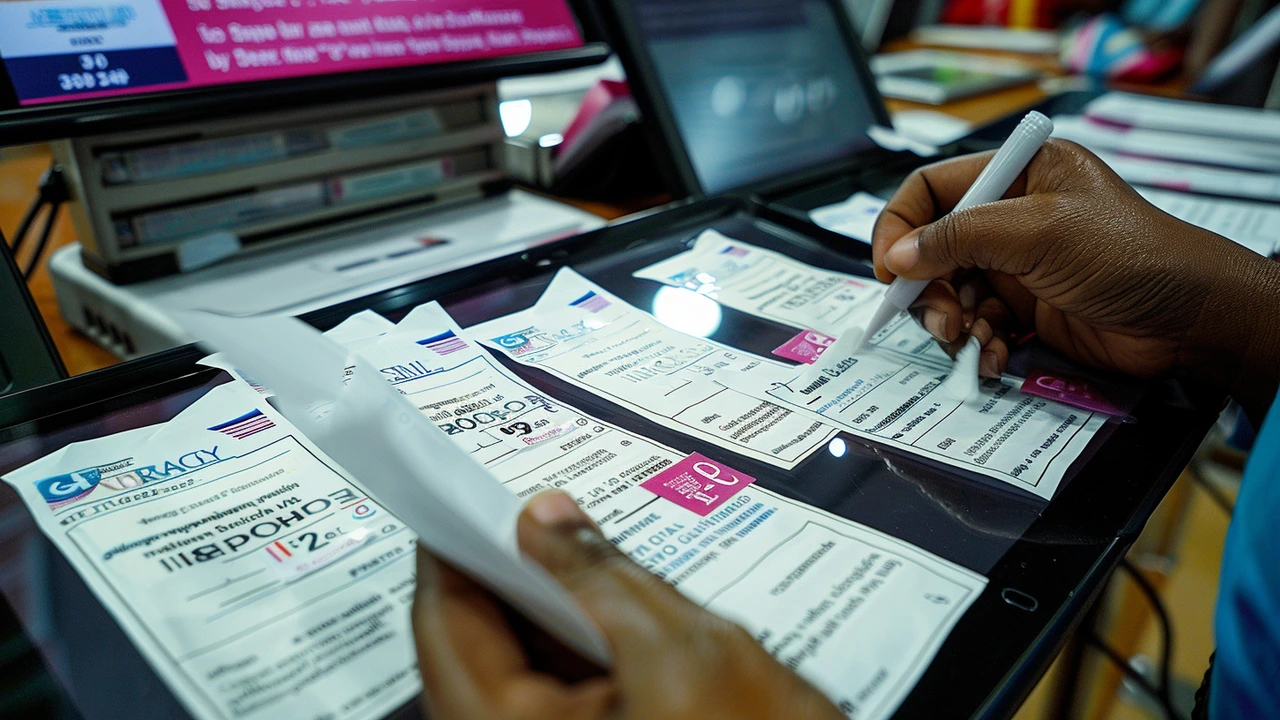
The Importance of Voter Trust
Voter trust in the electoral process is a major factor in the overall health of democracy. Doubts and concerns about the methods used to safeguard votes can undermine confidence in the system. The IEC's double envelope system for special votes illustrates a clear and transparent method to meet both the logistical needs and secrecy demands of the voting process.
When casting a special vote, the voter's name is scratched off the voters' roll and marked 'SV' to denote that they have cast a special vote. This additional measure further helps in creating an accurate and verifiable register of votes, ensuring that every special vote is accounted for and included in the final tally.
Addressing Public Concerns
By directly addressing the public's concerns, the IEC aims to reinforce confidence in the democratic process. They emphasized that the procedures in place for special voting are both rigorous and effective. Transparency in explaining these processes also plays a crucial role in addressing any misconceptions and establishing trust.
Ensuring that every vote matters and maintaining the secrecy of each ballot is at the heart of the IEC's operations. By clarifying the steps involved and the safeguards in place, they hope to reassure the public that their votes are safe and their identities protected.
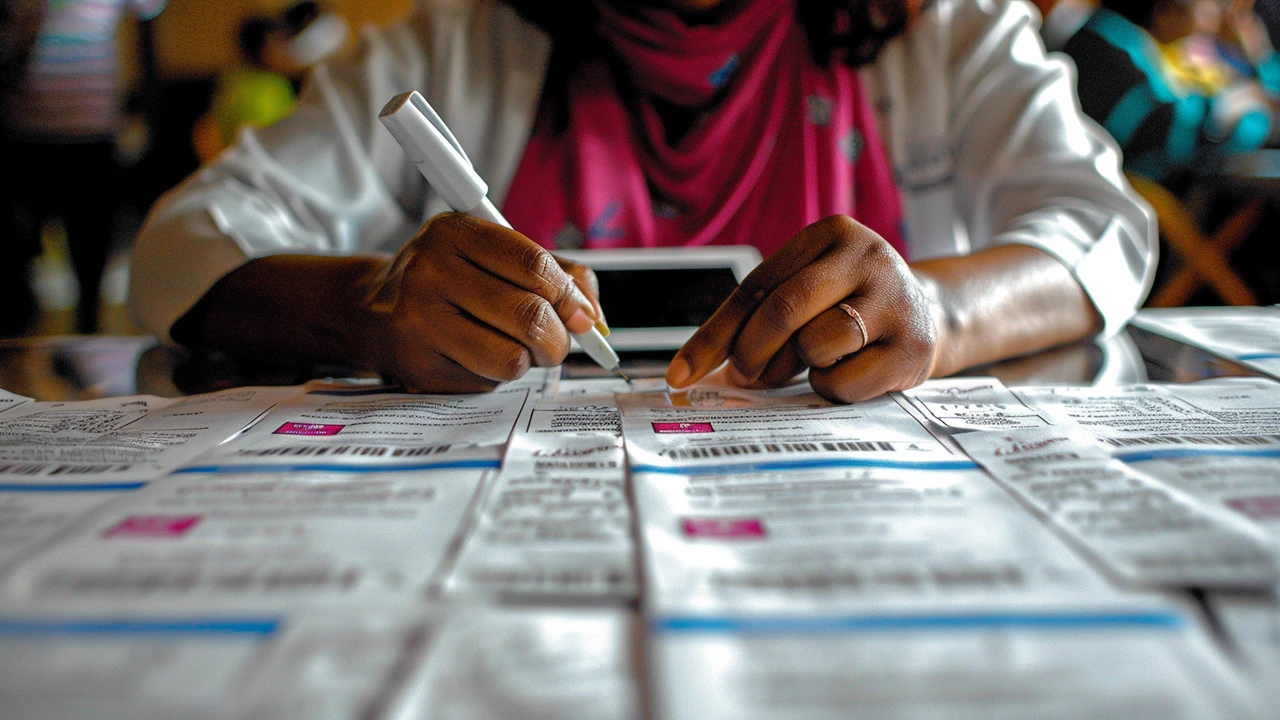
The Bigger Picture
The focus on the secrecy and accuracy of special votes is a testament to the elaborate measures taken by the IEC to ensure the smooth running of elections. It is a detailed process aimed at safeguarding every individual's right to a fair and secret vote, forming the bedrock of a healthy democratic society.
While technological advances might usher in new ways of voting in the future, the current double envelope system remains a robust and reliable method to handle special votes. By continuing to address voter concerns and enhancing the transparency of their procedures, the IEC upholds their duty to protect the democratic process in South Africa.

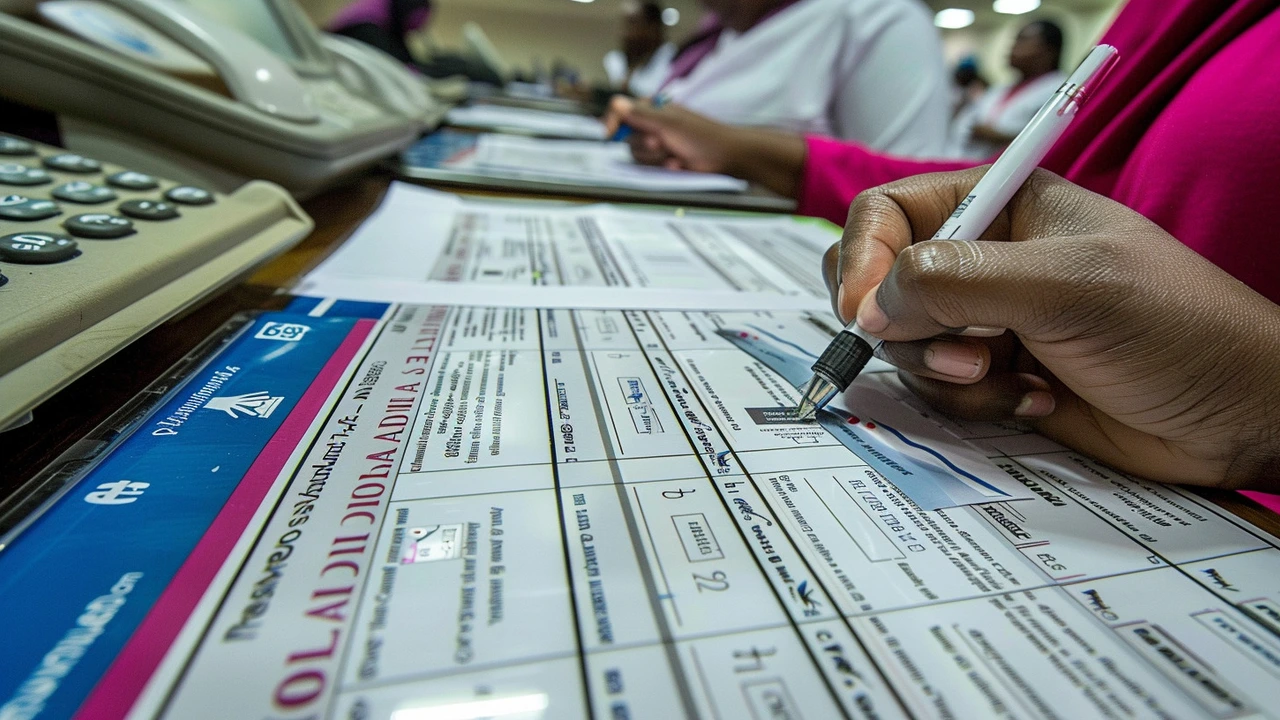
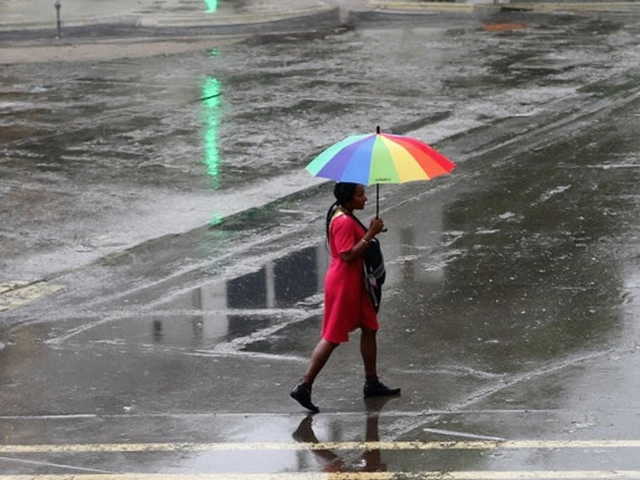
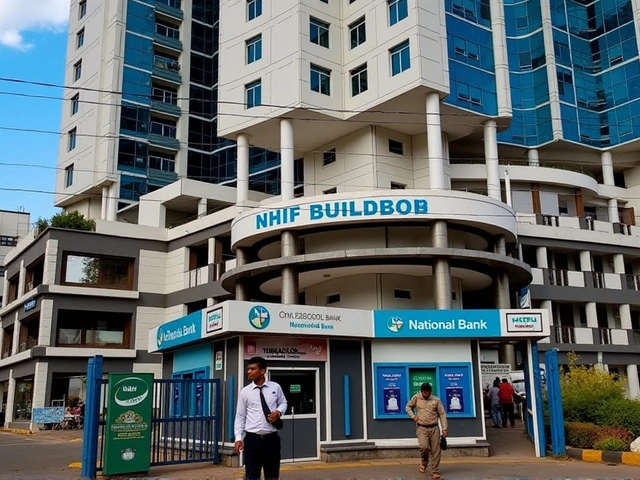
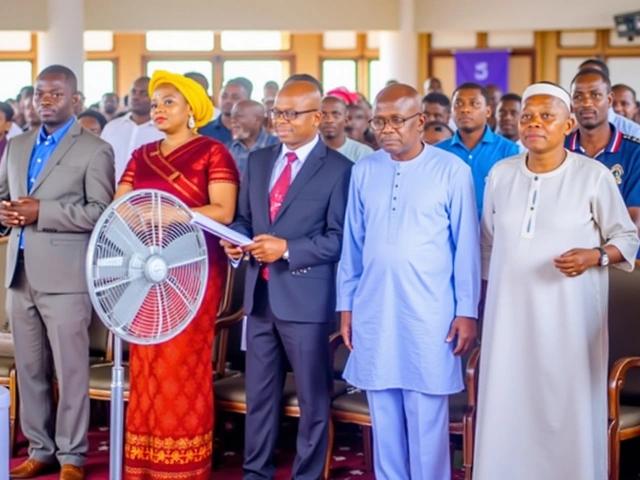

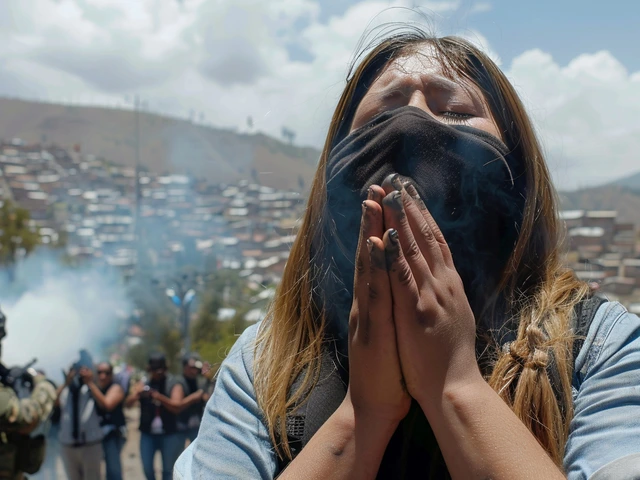
19 Comments
Behold, the sanctity of the democratic ritual! The double‑envelope system stands as a towering monument to transparency, integrity, and the inviolable privacy of each citizen’s conscience!!! Yet, the very whisper of doubt threatens to erode this sacred edifice; let us not surrender to the siren song of suspicion!!!
Oh, brilliant, another envelope‑within‑envelope saga to keep us all on edge.
Listen up, folks! The IEC’s protocol isn’t some flimsy paper‑trail; it’s a fortified cascade of checks designed to thwart fraud while shielding identity. Stop whining and recognize the system’s robustness, because complacency is the real threat to democracy.
Esteemed participants, the meticulous procedures outlined herein reflect a commitment to both accuracy and confidentiality. By adhering to these standards, we collectively uphold the legitimacy of the electoral outcome. Let us proceed with diligence and confidence.
From the bustling streets of Johannesburg to the vibrant townships of the Eastern Cape, the double‑envelope protocol weaves a tapestry of trust across our nation’s diverse cultural landscape! It showcases how procedural rigor can harmonize with the rich mosaic of South African society, reinforcing that every voice-no matter its origin-deserves protection and respect.
All in all, it’s a solid system 👍. Keep the faith, and let those votes roll in! 😊
The Electoral Commission’s operational framework for special votes integrates a multi‑layered authentication schema that aligns with international best‑practice standards. Each ballot undergoes a cryptographic validation cycle, wherein the inner envelope’s contents are reconciled with the outer envelope’s metadata through a secure hash algorithm. This process ensures data integrity while preserving anonymity, thereby mitigating potential vector attacks. Moreover, the logistical chain employs tamper‑evident seals calibrated to detect any unauthorized intrusion at the point of transit. Transportation units are equipped with GPS telemetry and real‑time monitoring dashboards, enabling supervisory oversight by the State Security Agency. Upon arrival at municipal warehouses, ballots are subjected to a controlled‑environment audit, featuring temperature‑regulated storage to maintain material fidelity. The audit trail is documented in a blockchain ledger, providing immutable provenance records that can be queried without compromising voter privacy. During vote tabulation, the IEC utilizes optical character recognition systems that interface with the central electoral database, streamlining the counting process while reducing human error. The double‑envelope design also facilitates cross‑referencing of voter registration data, ensuring that each special vote corresponds to a legitimately enrolled elector. Any discrepancy triggers an exception handling protocol, wherein a multidisciplinary review panel conducts a forensic analysis. This panel comprises legal experts, data scientists, and civil society observers, all of whom contribute to a transparent resolution mechanism. The final aggregation of results incorporates statistical adjustment models to account for any residual bias introduced by special‑vote handling. Stakeholder communication channels are maintained throughout, with periodic briefings disseminated to political parties and media outlets. Public confidence is further bolstered by the publication of anonymized process metrics, such as envelope throughput rates and seal integrity percentages. In sum, the IEC’s comprehensive suite of technical, procedural, and oversight measures constitutes a resilient architecture that safeguards electoral legitimacy in the face of evolving threat landscapes.
It is incumbent upon us to uphold the moral high ground by trusting the system that protects voter anonymity.
While we can appreciate the technical rigor, let’s also remember the human element behind each ballot 😊. The IEC’s transparency initiatives are a step forward, fostering a climate of mutual respect and accountability. Together, we can nurture a democratic culture that values both security and empathy.
Thanks for the clear breakdown. It really helps understand the process.
Wow!!! So many layers of security??? How does the outer envelope’s ID not compromise anonymity??? Is there any chance of data leakage???!
Robust system, strong safeguards.
Our nation's sovereignty depends on uncompromising electoral integrity; any laxity is an affront to patriotism and must be eradicated with decisive, data‑driven enforcement.
Analyzing the IEC’s protocol reveals glaring inefficiencies masked by bureaucratic gloss. The supposed “robustness” is a veneer, and the process invites more scrutiny than confidence. We should demand a radical overhaul, not settle for half‑measures.
Colorful safeguards weave a vivid safety net for our votes, blending tradition with modern oversight.
Hey team, u’re doin great, keep the spirit up. Remember, every vote counts, even if the process seems long. Stay chill and support each other.
Anyone else wonder how the seals are tested? 🤔 Curious about the exact tamper‑evidence tech! 😃
Appreciate the thorough explanation; it strengthens public trust.
Great info! If anyone needs a quick rundown, just ask – happy to help 😊.